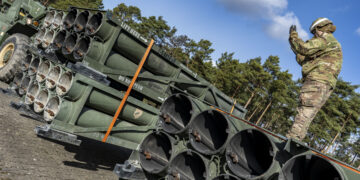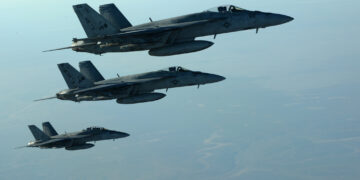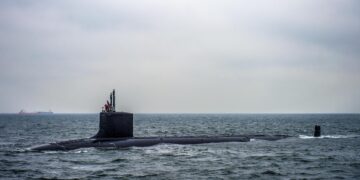November 3, 2023
Chinese strategists evaluate the use of ‘Kamikaze’ drones in the Russia-Ukraine War

The war in Ukraine has put a spotlight on the employment of so-called kamikaze drones, or loitering munitions (巡飞弹). These are weapons that have some level of capacity to patrol over the battlefield before attacking a target in self-destructive fashion. They often combine intelligence, surveillance, and reconnaissance (ISR), communication nodes, and data transfer capabilities, as well as strike functionality, in one platform.
This class of weapons dates to at least the 1980s, when Israel developed the Harpy loitering munition for use in the suppression of enemy air defenses (SEAD). China would later acquire the Harpy from Israel in 1994 and has been studying loitering munitions for over two decades.
Both Russia and Ukraine have used loitering munitions successfully in the current war—and China is watching closely. A recent article titled “The Little Pests that Patrol the Battlefield” in the Chinese military periodical “Weapons” enumerates the lessons that Chinese strategists have learned.
“Despite their small size, loitering munitions have achieved big results in the Ukrainian large-scale war of attrition,” the Chinese analysis notes. This assessment highlights that these relatively low-cost weapons are destroying high value and expensive targets, such as air defense radars and missiles, as well as other important targets.
More on Asia

Featuring Dan Caldwell
July 13, 2025

By Jennifer Kavanagh and Dan Caldwell
July 9, 2025

Featuring Jennifer Kavanagh and Dan Caldwell
July 9, 2025

Featuring Lyle Goldstein
July 4, 2025





